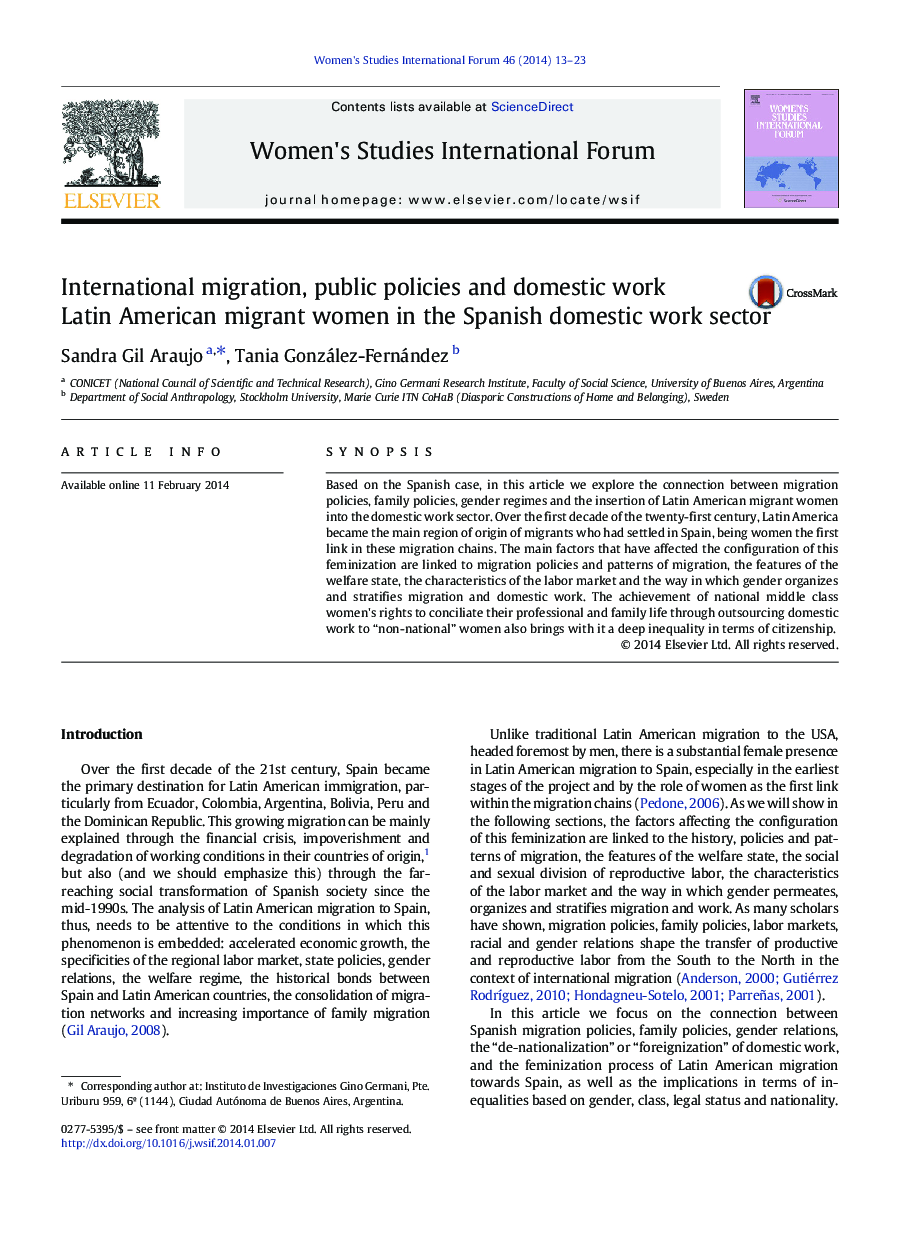| Article ID | Journal | Published Year | Pages | File Type |
|---|---|---|---|---|
| 375982 | Women's Studies International Forum | 2014 | 11 Pages |
SynopsisBased on the Spanish case, in this article we explore the connection between migration policies, family policies, gender regimes and the insertion of Latin American migrant women into the domestic work sector. Over the first decade of the twenty-first century, Latin America became the main region of origin of migrants who had settled in Spain, being women the first link in these migration chains. The main factors that have affected the configuration of this feminization are linked to migration policies and patterns of migration, the features of the welfare state, the characteristics of the labor market and the way in which gender organizes and stratifies migration and domestic work. The achievement of national middle class women's rights to conciliate their professional and family life through outsourcing domestic work to “non-national” women also brings with it a deep inequality in terms of citizenship.
